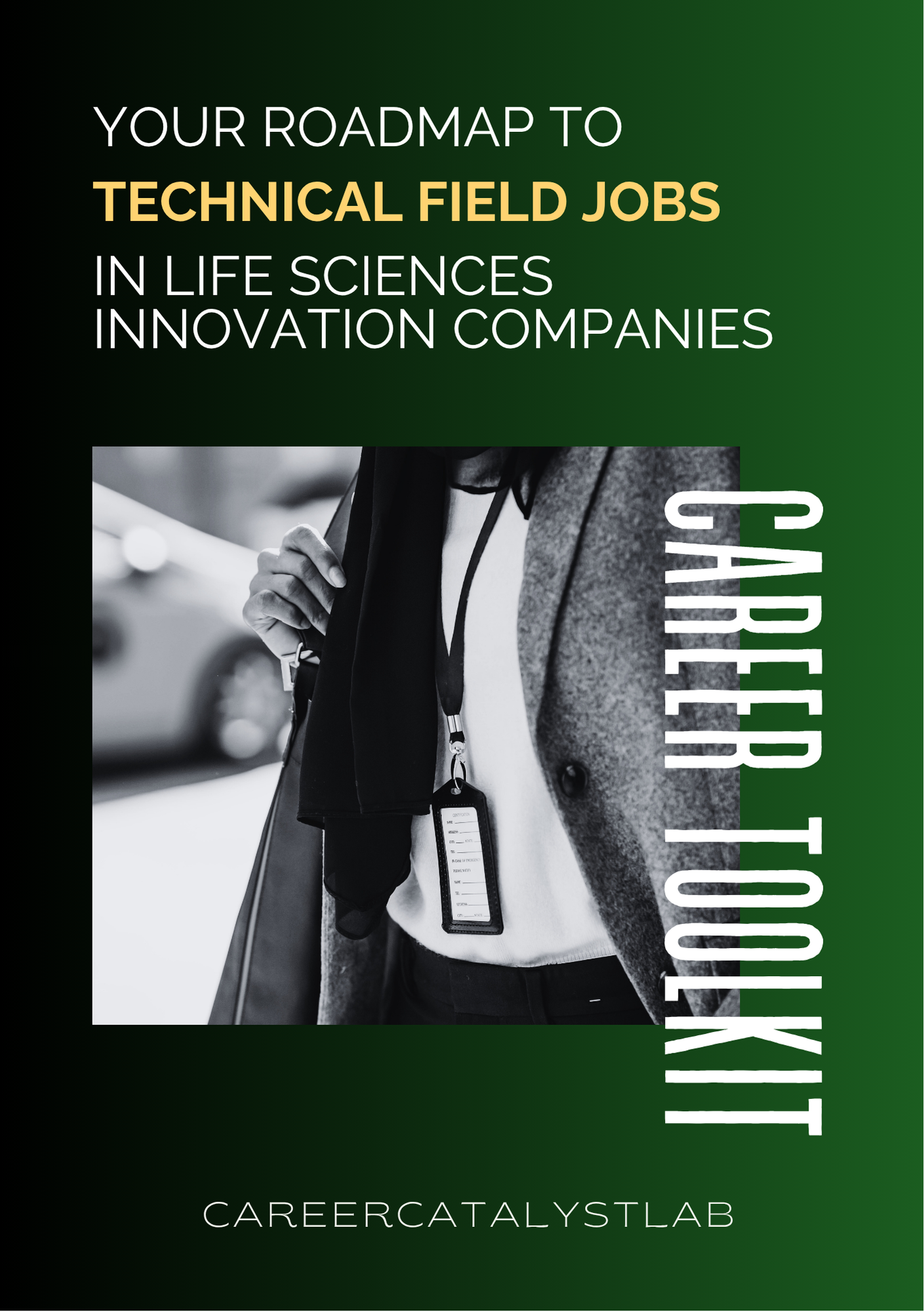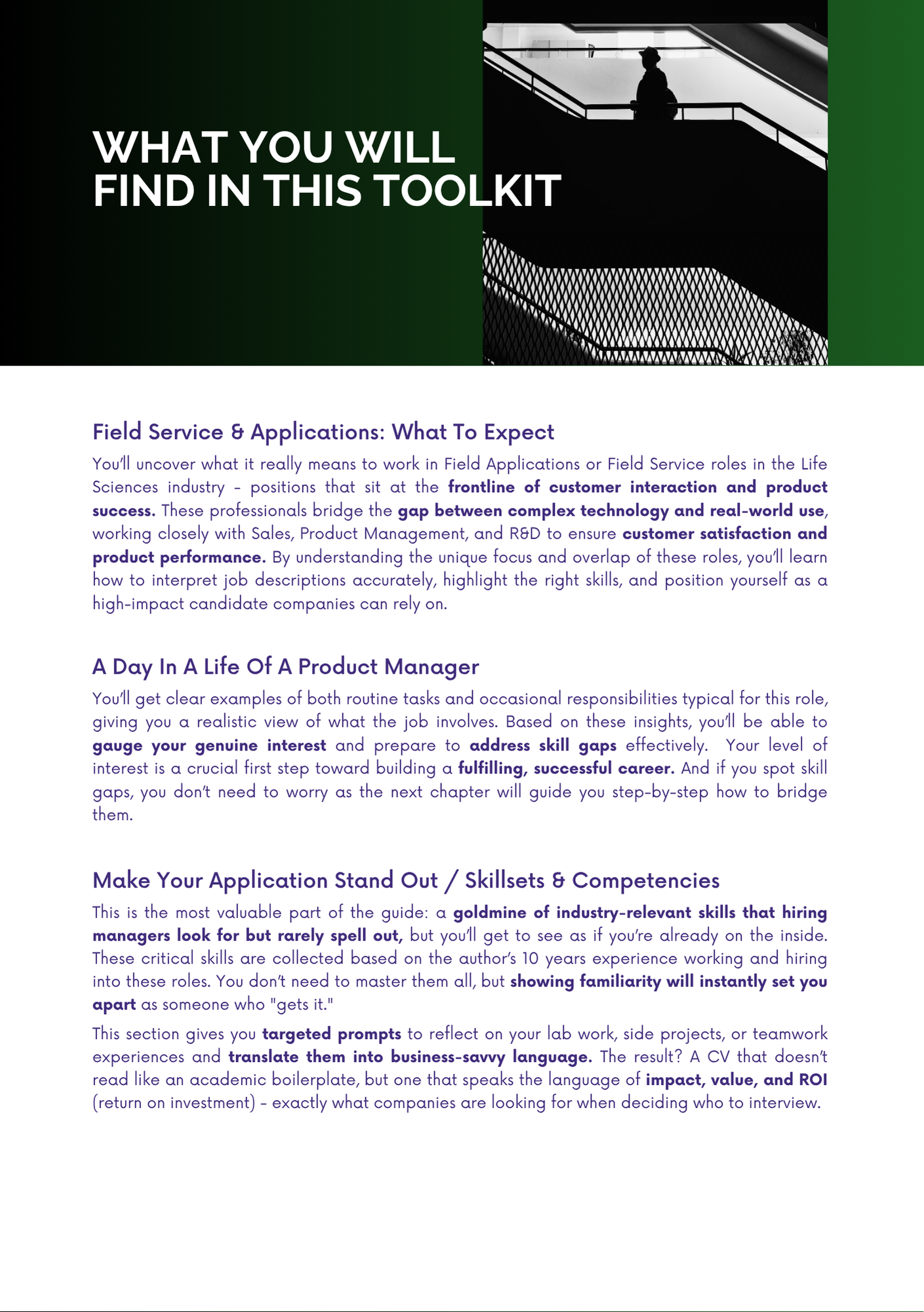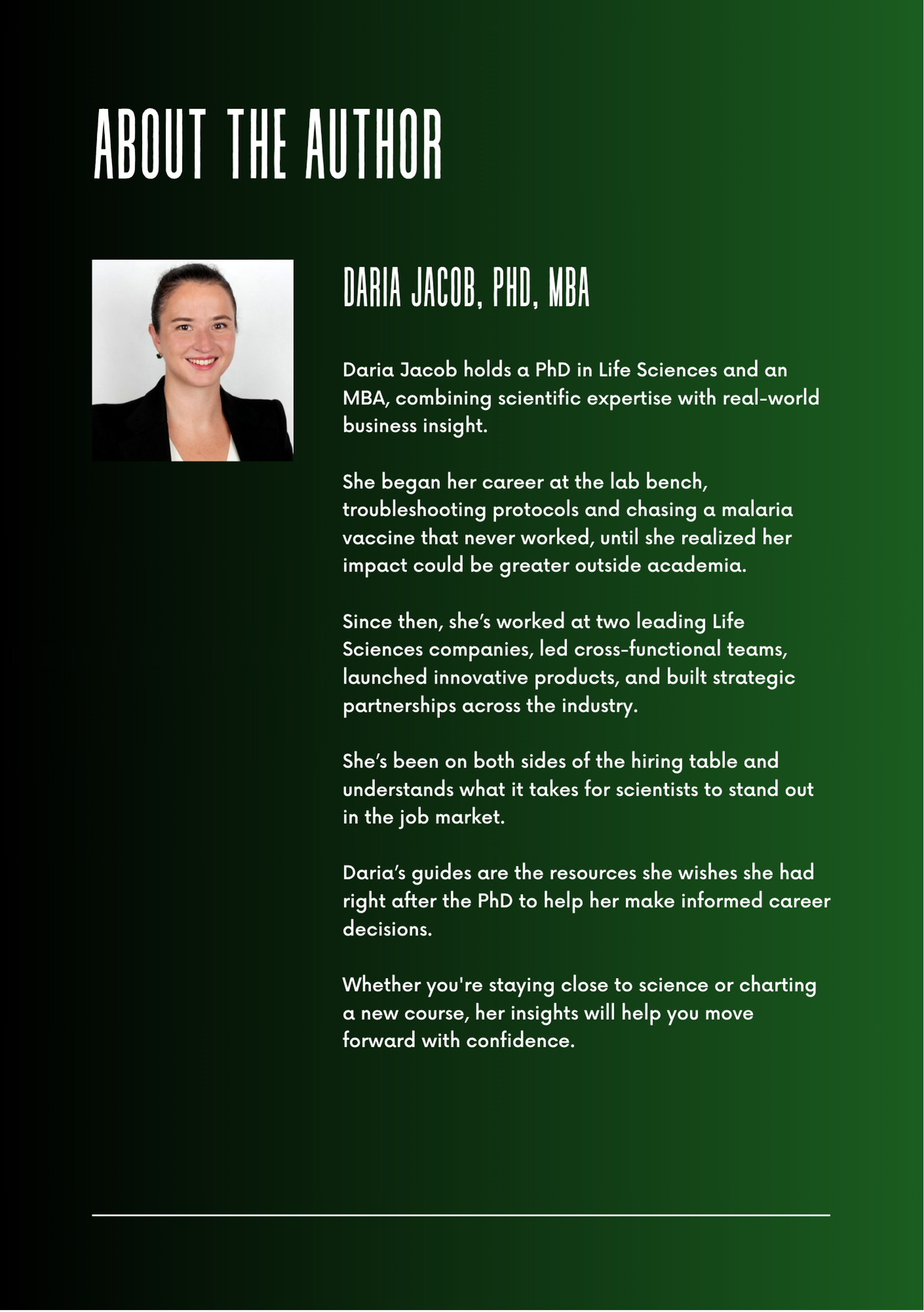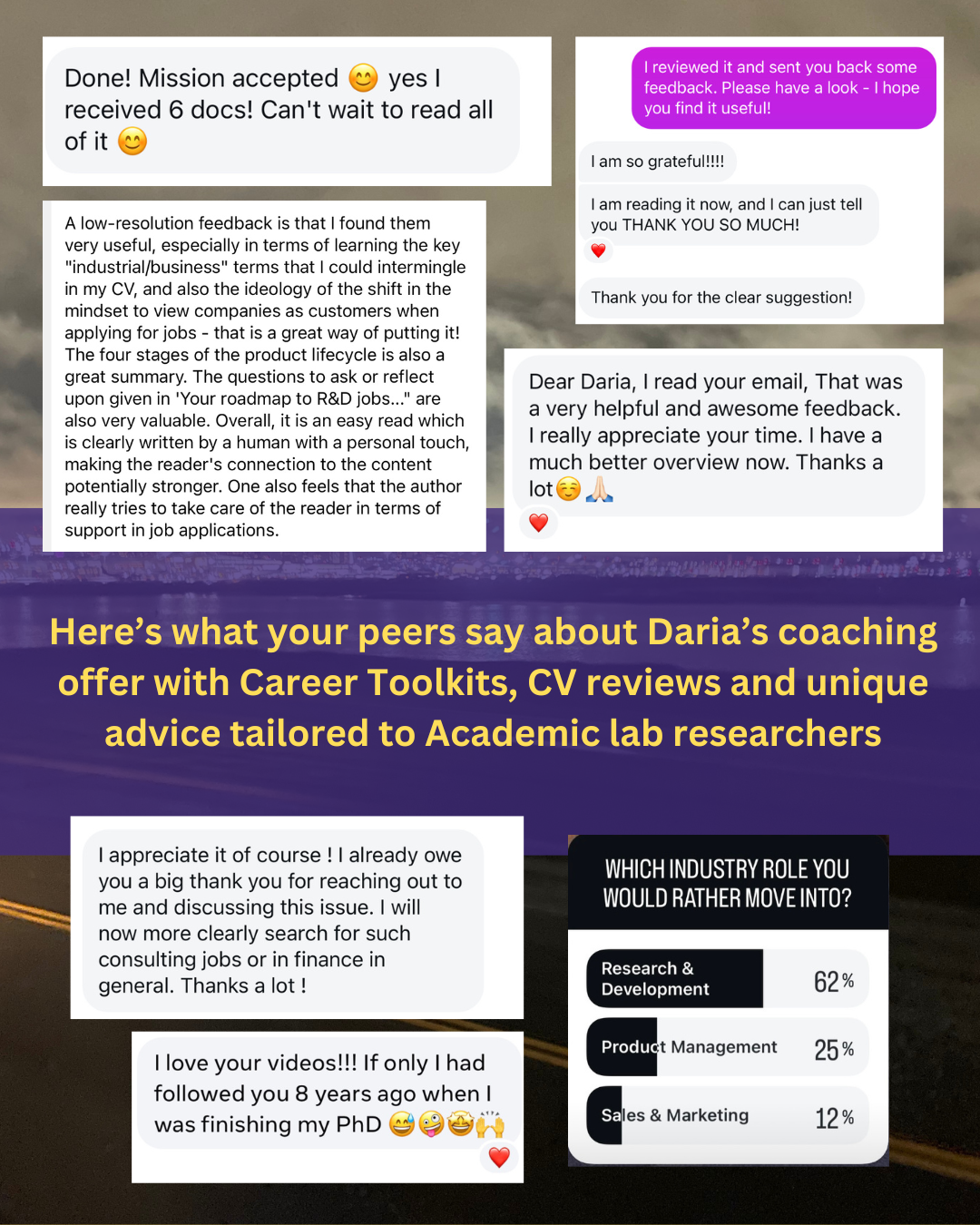Couldn't load pickup availability
Career Catalyst Lab
Your Roadmap to Technical Field Jobs in Life Sciences Innovation Companies
Your Roadmap to Technical Field Jobs in Life Sciences Innovation Companies
Break into Technical Field jobs in the Life Sciences industry: enhance your career and salary.
Field Service & Applications: What To Expect
You’ll uncover what it really means to work in Field Applications or Field Service roles in the Life Sciences industry - positions that sit at the frontline of customer interaction and product success. These professionals bridge the gap between complex technology and real-world use, working closely with Sales, Product Management, and R&D to ensure customer satisfaction and product performance. By understanding the unique focus and overlap of these roles, you’ll learn how to interpret job descriptions accurately, highlight the right skills, and position yourself as a high-impact candidate companies can rely on.
A Day In A Life Of A Product Manager
You’ll get clear examples of both routine tasks and occasional responsibilities typical for this role, giving you a realistic view of what the job involves. Based on these insights, you’ll be able to gauge your genuine interest and prepare to address skill gaps effectively. Your level of interest is a crucial first step toward building a fulfilling, successful career. And if you spot skill gaps, you don’t need to worry as the next chapter will guide you step-by-step how to bridge them.
Make Your Application Stand Out / Skillsets & Competencies
This is the most valuable part of the guide: a goldmine of industry-relevant skills that hiring managers look for but rarely spell out, but you’ll get to see as if you’re already on the inside. These critical skills are collected based on the author’s 10 years experience working and hiring into these roles. You don’t need to master them all, but showing familiarity will instantly set you apart as someone who "gets it."
This section gives you targeted prompts to reflect on your lab work, side projects, or teamwork experiences and translate them into business-savvy language. The result? A CV that doesn’t read like an academic boilerplate, but one that speaks the language of impact, value, and ROI (return on investment) - exactly what companies are looking for when deciding who to interview.
Share







